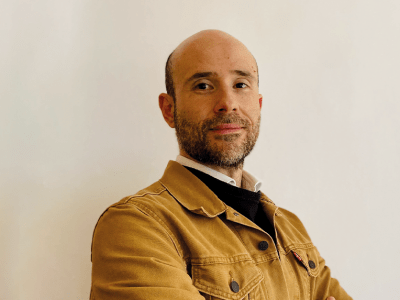Choosing a career path isn’t easy. Graduates entering the modern career market face more choices than at any other point in history. Feelings of inertia and uncertainty are common.
We invited Toni Gimeno, co-founder of Talent Clue and recruitment expert, to talk to us about how to find a rewarding career.
After finishing his first degree Toni decided that he didn’t want to follow his friends, many of whom were working twelve-hour days, into a demanding role in business administration. He completed a master’s in international economics and then took an internship at a digital marketing firm. After gaining valuable experience, he co-founded his first company, which grew to over sixty employees. He now works as a recruitment consultant for some of the world’s best-known brands.
Here’s a roundup of the main points from his presentation:
1. Focus On the Long-Term
It’s easy to fall into the trap of comparing yourself to friends, especially if they’ve been working for longer and are paid more than you. But maintaining a long-term focus, said Toni, is crucial. When he started Talent Clue he was essentially working for nothing while his former colleagues were commanding six-figure salaries.
Maintaining a focus on the long-term benefits of what he was doing, however, prevented him from being sidetracked by constant comparison. He recommended that anyone pursuing meaning and passion, rather than just a hefty paycheck, should adopt this mindset as a foundation for future success.
2. Answer the question, “Why do I work?”
Understanding the real reasons why you work, argued Toni, is the key to finding a job that is genuinely fulfilling. When somebody understands themselves, they’re in a much better position to pick a company that will satisfy their true motivations.
Like Maslow’s hierarchy of needs, a job provides different “tiers” of benefits, and the higher you ascend, the happier you’ll be. Salary, security, and recognition sit at the bottom of the pyramid. While these factors are necessary, focusing on them exclusively won’t lead to a job that you love.
It’s equally vital to account for the workplace environment, specifically whether or not the way that you work will provide autonomy, good relationships with colleagues and creative freedom. Toni said that when individuals are considering a job, they should take time to determine whether or not a company’s culture and values are a match for their personality.

Finally, purpose sits at the top of the “hierarchy”. The sense that you’re doing work that matters, given all your other needs are met, is essential for job-related happiness. And when you know your purpose – which needn’t be some overwhelming desire to “save the world” – you can make career choices accordingly.
3. Recognize That Passion Comes From Experimentation
The advice “find your passion” is everywhere nowadays. But Toni argued that passion doesn’t come before you start a job. Instead, feelings of passion derive from a doing job that fits with your purpose. Specifically, a combination of challenging and purpose-driven work leads to satisfaction. He summed it up with the following formula:
Hard work + purpose = passion.
Rather than trying to identify a pre-existing passion, you should instead determine your broader purpose. You can then build passion for a particular type of work in any of a number of careers.
This leads a lot of people to ask, “How do I find my purpose?” And Toni proposed a simple exercise to answer this question.
4. Spend Some Time Thinking About Your Purpose
Toni suggests using the “TAP” formula to find your purpose. This process involves answering three questions:
- What are your natural talents?
- What makes you angry, annoyed and eager to change something?
- What are you already passionate about?
Once you’ve answered these, write a mission statement with the following template: My purpose in life is to use my talent in…and my passion for…to help….
5. Build a Practical Skill Set to Land Your Dream Job
Toni spent the remainder of his presentation outlining the practical steps involved in finding a specific job that fits with your purpose. He said that traditional approaches to searching and applying for jobs simply aren’t effective anymore.
You should be proactive about investigating and picking companies, rather than applying for jobs randomly or blindly accepting offers. Toni outlined a set of steps that job-hunters can take to find their ideal employer:
- If you could create your own company and perfect position, what would it look like? – Toni said that you should evaluate companies as if you’re making a €1,000 purchase. What features would your ideal “product” have?
- Use a company’s website, social media accounts and former employee reviews to get a sense of what it’s like to work there – In particular, pay attention to the “employee value proposition” on the career page. Look for posts, images, and videos on social media channels like LinkedIn and Instagram. It’s also important to get a sense of what day-to-day activities will look like.
- Define your value proposition – When reaching out to companies, it’s essential to view yourself as an asset. Be specific about the value and benefits you provide.
- Build a high-quality LinkedIn profile – Your LinkedIn profile is the best outlet for advertising your value proposition. Optimize your whole profile, from the headshot to the work experience section, to attract prospective employers. Add some multimedia content to your profile, ask past colleagues for recommendations that highlight your best qualities, and remember to provide contact information.
- Reach out to companies via LinkedIn – Once you’ve built a compelling profile, it’s time to get in touch with your dream companies. Contact the HR manager or appropriate department head and outline the value that you can bring to any open positions. Even if a company isn’t currently hiring it’s still worth reaching out so your name is on their records.
- Ask for an interview – Your initial aim should be to get an interview. Don’t ask for a job directly. Showing interest in your chosen company is one of the best things you can do, so spend around half of the time asking questions.
Toni rounded off with a final piece of advice. Keep searching for positions and attractive companies right up until you start working. If you have more interviews scheduled, don’t cancel them. Even during the first couple of days, sample the job and keep your options open.
Prepare Yourself for a Fulfilling Career
Our hyperconnected world provides you with a unique opportunity to find a fulfilling, purpose-driven career that leverages your talents.
A degree from EU Business School will equip you with a broad set of skills, giving you the ability to pick a job that feeds your passion. Take a look at our wide selection of bachelor’s programs and our Master of Business Administration (MBA).










